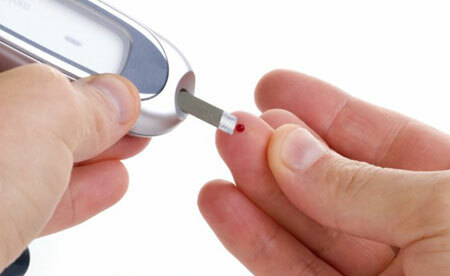When a person's blood glucose level rises, then such a state in accordance with medical terminology is called hyperglycemia. It often develops against the background of a decrease in the production of insulin and in most cases is a sign of diabetes. But besides this, other factors can provoke a hyperglycemic state.
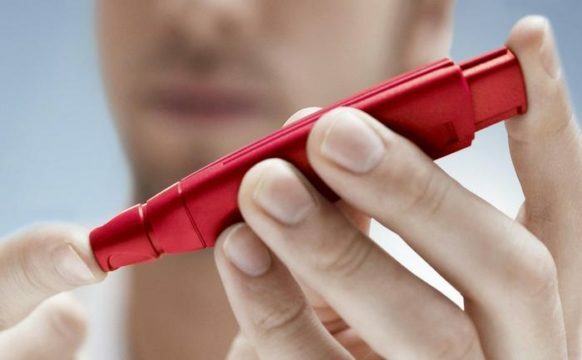
Types of hyperglycemia
Increased blood sugar levels can occur for various reasons. But in any case, it should be understood that such a state is very dangerous and requires immediate adjustment. This pathology is classified by etiological factors into the following types of hyperglycemia:
- Chronic hyperglycemia. It can develop both because of hereditary factors, so because of acquired pancreatic diseases. A pathology of this type arises in type 1 diabetes mellitus, a characteristic feature of which is a low level of insulin, or in type 2 diabetes mellitus, when insulin is produced in sufficient quantity, but does not interact correctly with cells.
- Emotional or stressful hyperglycemia. This pathology manifests itself as a reaction to psychoemotional shock. Violations are due to the fact that against the background of psychoemotional stress in the human body, hormones are beginning to be produced that stop the glycogenesis process, which ensures the conversion of glucose into glycogen. On the other hand, the processes of glycogenolysis and gluconeogenesis associated with the breakdown of glycogen into glucose are intensified. As a result of this imbalance, the blood sugar level increases.
- Alimentary hyperglycemia. It occurs after eating. This form does not refer to pathological conditions and develops against the background of taking a large amount of carbohydrates. In this case, hyperglycemia does not require correction or treatment, as the sugar level decreases to acceptable values for a short period of time.
- Hormonal hyperglycemia. Pathology develops against a background of hormonal imbalance. Hyperglycemic hormones such as glucocorticoids, catecholamines, glucagon increase blood sugar levels. Failure in the hormonal system happens against a background of certain diseases of the endocrine system.
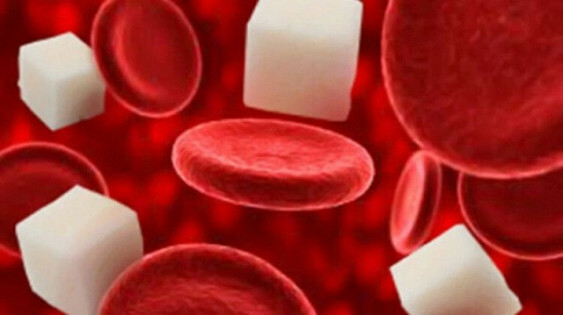
Hyperglycemic syndrome is divided in degrees of severity:
- The mild form develops when the blood sugar level does not exceed 10 mmol / l.
- The medium-heavy form is diagnosed with blood glucose values of 10-16 mmol / L.
- Heavy form is characterized by a sharp rise in blood glucose levels, above 16 mmol / l.
- When the glucose index exceeds the value of 16.5 mmol / l, it threatens the development of precoma and even the fact that a person may fall into coma.
For people suffering from diabetes, hyperglycemic syndrome is classified into the following two types:
- Fasting hyperglycemia. In this case, the blood glucose level rises to 7 mmol / l, when the break between meals is more than 8 hours. This form is also known as hyperglycemia.
- Postprandial hyperglycemia. In this case, the blood glucose level exceeds 10 mmol / l immediately after eating.
Symptoms of
Hyperglycemia is a serious pathological condition. But if it is detected in time, you can avoid dangerous health consequences. Therefore, it is necessary to know the symptoms of hyperglycemia. They are quite obvious, so it's hard not to notice them.

Syndrome of hyperglycemia is always associated with a constant thirst and dry mouth. In this case, a person can drink up to 6 liters of water per day. As a result, the number of urination also increases at times. It is these two symptoms that can indicate that hyperglycemia is associated with the development of diabetes mellitus.
Other signs of hyperglycemia:
- Constant fatigue or weakness, not explainable;
- Increased sweating;
- Headache and decreased concentration of attention;
- Weight loss in a short time with normal nutrition;
- Chills;
- Heavy breathing and muscle pain;
- Periodic occurrence of a feeling of nausea;
- Dryness of the skin, decreased sensitivity and itching;
- Impairment of vision;
- Worsening of wound healing;
- Confusion and fainting;
- The appearance of the odor of acetone from the mouth.
Reasons for
The main substance that is responsible for the normalization of blood sugar is insulin, produced by the pancreas. The causes of hyperglycemia in diabetes mellitus are associated with the following:
- In the first case, in type 1 diabetes due to destruction of pancreatic cells or inflammation of the pancreas, insulin production is significantly reduced. Hyperglycemic effect occurs when more than 80% of cells producing insulin die.
- In the second case, type 2 diabetes disrupts susceptibility to insulin. This hormone ceases to be recognizable by the body, and as a consequence, the level of glucose in the blood rises even with sufficient insulin production by the pancreas.
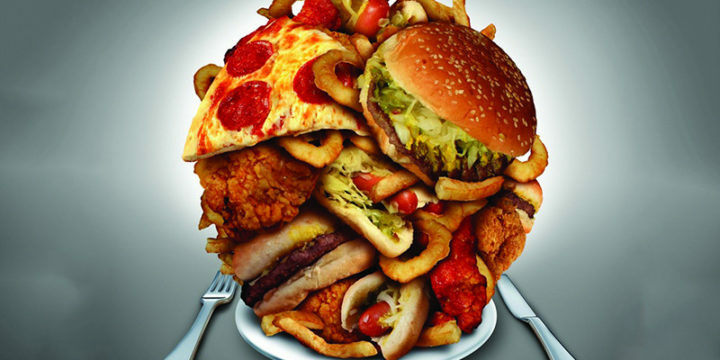
If everything is normal with insulin production, hyperglycemia in children and adults can be provoked by other factors, namely:
- Permanent overeating and consumption of high-calorie food rich in carbohydrates;
- Frequent stressful situations, on the basis of which transient hyperglycemia develops;
- Unbalanced and improperly selected physical loads. And to provoke a glycemia can, both strong overfatigue, and a lack of movement;
- Infectious diseases;
- Taking certain medications.
Hyperglycemia in newborns, most often develops, with low weight, up to 1.5 kg. This is usually premature babies. In this case, the causes of glycemia are associated with excessive glucose infusions. Also, a newborn can often have a high blood sugar level due to infection with the infection.
Sometimes hyperglycemia is diagnosed in women bearing a child. This may be due to increased stress on the body and a violation of carbohydrate-lipid metabolism.
Consequences and Diagnosis
The consequences of hyperglycemia, if left untreated, can be very severe. It should be understood that even if you do not notice a deterioration in your health, but you know that the sugar level in your blood is higher than the hole, irreversible changes will appear in a few years.
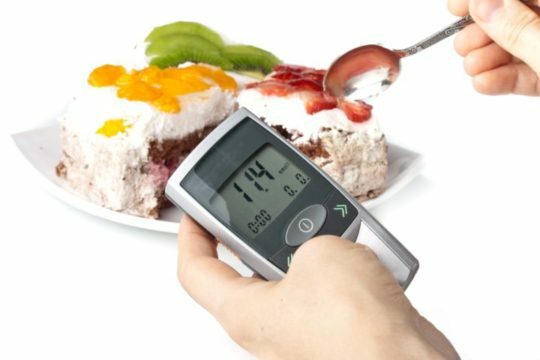
It is very likely that in the future there will be pathological changes in the cardiovascular and nervous system. Also will be observed:
- Disturbances in kidney function;
- Inflammation of the gums;
- Eye diseases: cataract or glaucoma.
Therefore, even if the cause of hyperglycemia is a banal overeating, then you should undergo a survey. Even a single increase in blood sugar can signal the development of diabetes.
Hyperglycemia in the absence of treatment leads to a metabolic disorder. At a high level of glucose in the blood, a person develops ketoacidosis. It can provoke shock, to whom and even death.
Diagnosis of this pathology involves a biochemical analysis to determine the level of sugar in the blood. Blood sampling is performed in the morning on an empty stomach. If the indicator is in the region of 126 mg / dl, then unequivocally one can assert about the development of diabetes mellitus.
To clarify the diagnosis, pathomorphological analyzes are performed, which reveal whether the pancreatic function is associated with oncology. With a slight increase in the level of glucose, a reanalysis is carried out after eating approximately a couple of hours after the first. To exclude the stress factor, a second blood test is scheduled after a week.
Treatment of
If hyperglycemia is mild, then medications should not be used for treatment. Normalize blood sugar levels can be a lifestyle change. A diet for hyperglycemia is very important for a positive prognosis. From the diet you need to exclude carbohydrate and high-calorie foods, as well as fried and smoked dishes. The obligatory components of the daily menu should be vegetables and fruits. In addition, you must strictly adhere to the diet. It should be understood that the diet must necessarily be agreed with the doctor. The regular physical loads corresponding to the age and state of the organism contribute to the normalization of blood sugar values.
If a person is diagnosed with diabetes, then insulin injections are used for treatment. Their reception schemes are appointed by the doctor. It should be remembered that a sharp jump in the level of sugar in people with diabetes is usually associated with late taking a sugar reducing drug. Therefore, you must strictly follow the doctor's recommendations.
In hyperglycemic insulin-independent complications, it is necessary to neutralize the increased acidity. To do this, you need to drink a lot of mineral water and eat a lot of vegetables and fruits. Quickly reduce the acidity can be with a couple of teaspoons of baking soda, dissolved in water. The skin of a person who has a hyperglycemic complication should be constantly wiped with a damp cloth. This will make up for the loss of body fluid. Also, a generous drink is recommended.
Traditional medicine offers many methods for dealing with hyperglycemia. Essential oils contained in various medicinal plants, reduce the concentration of glucose in the blood and contribute to the stabilization of the condition. Hyperglycemia in diabetes mellitus is most often treated with eucalyptus, juniper and geranium. In addition, a tea made from the leaves of bilberry and birch, burdock roots and bean leaves is considered useful at an elevated blood sugar level. But at the same time it is important to remember that any national recipes should be agreed with the doctor in advance.



